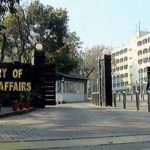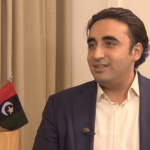ISLAMABAD, Dec 8 (APP): Minister for SAFRON, Abdul Qadir Baloch on Thursday said report of a Committee on FATA Reforms-2016 is expected to be presented in next meeting of Federal Cabinet to get its approval for mainstreaming FATA.
The report has already been presented to Prime Minister Office and
discussed in a meeting of National Action Plan where it was agreed to make its finding public to elicit further debate and develop national consensus.
Addressing a press conference here, Qadir Baloch said Chairperson of
the FATA Reforms Committee was Advisor to Prime Minister on Foreign Affairs, Sartaj Aziz while its members were Minister for SAFRON, Abdul Qadir Baloch, Minister for Law & Justice, Zahid Hamid, National Security Adviser, Lt. Gen ® Nasser Khan Janjua, Governor Khyber Pakhtunkhwa (KPK), and also Secretary SAFRON.
He said the total population in FATA is around 7 to 8 million and comprises the Agencies of Bajaur, Mohmand, Khyber, Orakzai, Kurram, North Waziristan and South Waziristan, besides the Frontier Regions of Peshawar, Kohat, Bannu, Lakki, Tank and D.I.Khan.
Qadir Baloch said that the region faced Pakistan’s highest rate of endemic poverty and lowest development indicators, with its people facing huge deficit of human rights.
He said the sessions of the Senate and National Assembly also held a debate and suggestions from all stakeholders were incorporated to make recommendations more effective.
The Minister said the Committee pointed that the consultation process
brought forward four options of transformation of FATA which included
maintaining of status-quo with minor changes; or granting special status to FATA like Gilgit-Baltistan; creating a separate province for FATA, or integrating FATA into KPK province.
Integrating FATA into KPK made more sense keeping in view close horizontal linkages of agencies and FRs with adjacent KPK districts.
These trade and economic links were also reinforced by social and cultural consanguinity with FATA tribes, the Committee recommendations said.
Abdul Qadir Baloch said FATA Reforms Committee also favoured repealing the existing Frontier Crimes Regulation (FCR) with new “Tribal Areas Rewaj Act” and the Jirga system.
He said during the consultations all stakeholders expressed unanimity on Rewaj Act, terming it part of their age-old tradition.
He said the provisions relating to collective responsibility in the FCR will
be omitted in the new Act, thereby making an individual responsible for his own acts.
The Jirga system will remain prevalent in criminal and civil disputes, while it was also proposed to codify the “Rewaj” in each agency.
The Committee also proposed to carry out land settlement in FATA so that this land asset can be capitalized to release locked up funds.
The Minister said following an over eight month long “extensive consultative process” the Committee held meetings with parliamentarians from Federally Administered Tribal Areas (FATA), tribal elders, religious leaders, leaders of major political parties in FATA, the business community, civil society representatives and youth organizations.
He said the FATA Reforms only be meaningful if the Temporarily
Displaced Persons (TDPs) return home and be assisted to reconstruct their property damaged during the operations, besides other infrastructure, adding that majority of TDPs have returned to their homes.
He said the Committee proposed investment in a ten year FATA
Development Programme covering all the sectors and also proposed holding of local bodies elections in 2017; up to 30 per cent of the FATA 10-Year Development Plan will be executed through the local councils.
The Minister said to ensure availability of adequate resources for development of FATA on a long term basis, 3 per cent share from the divisible pool has been proposed which would in addition to the existing annual development allocation of Rs 21 billion a year.
He said new posts of 20,000 Levies would be created for policing while
better border management with Afghanistan shall be enforced with the addition of additional Frontier Corp and improved surveillance.
He said a Governor’s Advisory Council that includes all the parliamentarians would be established to advise the Governor in development and administrative matters, including the progress of the integration process.
Referring to Implementation Mechanism, he said the objective was to
achieve sustained political engagement, and experts would be provided at the technical level for reform implementation.
The package of reforms will be delivered by a Directorate of Transition
& Reforms established in FATA Secretariat and a cabinet level Committee will be formed to over see implementation of FATA Reforms.
He said a reform unit will be established in SAFRON to oversee the entire process and report to the cabinet level committee.
The committee also reviewed the overall security situation and achievements of ongoing Zarb e Azb operation that had restored peace and stability.
The Minister said the committee recognized that if appropriate reforms
were not introduced early, the advantages obtained from the Zarb e Azb operation will be lost.







